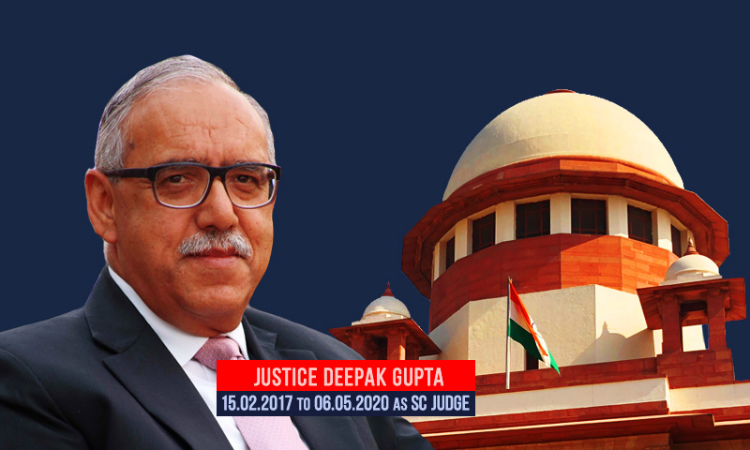Justice Deepak Gupta, who served the Supreme Court as a judge for over three years, had his last working day at the top court on Wednesday.He assumed the office of SC judge on February 15, 2017.The Supreme Court Bar Association gave a "virtual farewell" to Justice Gupta on Wednesday evening on account of the lockdown - a first of the kind event in the SC history where a judge is...

